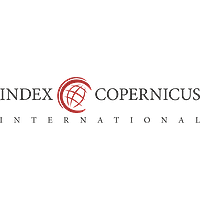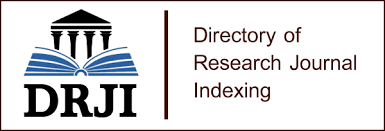RIGHT TO PRIVACY: IS IT A FUNDAMENTAL RIGHT IN BANGLADESH CONSTITUTION?
Abstract
Right to privacy is an important part of personal liberties. Human life is not complete without right to privacy. It strengthens human dignity and other values. It is also the ability of an individual or group to seclude themselves, or information about themselves, and thereby express themselves selectively. The aim of this paper is to focus on the right to privacy in Bangladesh Constitution. In the same time, author also focuses the Islamic perspective of right to privacy because most of the people of Bangladesh are following Islam. It is a qualitative research. The information has been taken from many readings, articles, books, newspapers and statutes. Now a day, Privacy has become one of the most important human rights of the modern age and it has been recognized around the world by Constitution.
Â
References
Al-Ghazali, (1994), Huquq al-insan bayna ta’alim al-Islam wa i’lan al-umam al-muttahidah (Human rights between Islamic teachings and the declaration of the United Nations), Dar al-Tawfiq, Cairo.
Black, G. (2011), Publicity Rights and Image, Oxford: Hart Publishing.
Holy Qur’an.
Islam, M. Z.(2013). Health as Human Rights under Malaysian National Legal Framework. IOSR Journal of Humanities And Social Science (IOSR-JHSS)Volume 12, Issue 5, PP 51-57.
Islam, M. (2002). Constitutional Law of Bangladesh, Bangladesh: Mullick Brothers.
Karim, M. E. (2005), Citizen’s Right to Privacy: Reflection in the International Instruments and National Laws, Bangladesh Journal of Law, Vol. 9, no. 1&2.
M.H Shakir’s translation of the Holy Qur’an, as published by Tahrike Tarsile Qur’an, Inc., P.O.Box.1115,Elmhurst, New York 11373
Sahih Bukhari.
Sahih Muslim.
Sunan Abu Dawud.
Zulhuda, S. (2013), Right to privacy: development Cases and Commentaries in Constitutional Law and Human Rights in Malaysia, edited by Khairil Azmin Mokhtar, Malaysia: Thomson Reuters Malaysia Sdn Bhd.
Published
How to Cite
Issue
Section
License
Copyrights for articles published in Journal of Asian and African Social Science and Humanities are retained by the authors, with first publication rights granted to the journal. The journal/publisher is not responsible for subsequent uses of the work. It is the author's responsibility to bring an infringement action if so desired by the author.
Articles published in Journal of Asian and African Social Science and Humanities are published under the Creative Commons Attribution (CC-BY) license, which permits others to distribute, remix, tweak, and build upon your work as long as they credit you for the original creation.
Â














